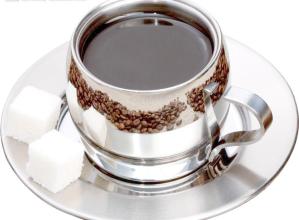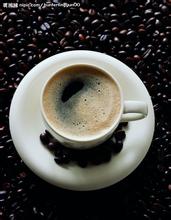Full-bodied aroma of Indonesia Fuyin Manor Coffee Flavor characteristics of taste introduction of boutique coffee beans
In March 2014, Indonesian President Susilo Bambang Yudhoyono signed Presidential decision No. 12 of 2014, formally repealing Circular No. 6 of 1967 and renaming ** (cina) as "China". Circular No. 6 of 1967, a product of the era of former Indonesian President Suharto, contains discrimination and insult to the national dignity and personality of China and the Chinese. The local Chinese said that the discriminatory terms against China and Chinese for more than 40 years will be gone forever, which is a manifestation of Indonesia's democratic political progress. Medan is the capital of North Sumatra province, with an urban area of 342 square meters and a population of about 1.8 million. It is the third largest city in Indonesia. Bordering the Strait of Malacca, it is the west gate of Indonesia's foreign trade and one of the main entry and exit ports for domestic and foreign tourists. The establishment of the economic growth triangle in Indonesia, Malaysia and Thailand has strengthened its position as the development center of Jiangsu Province and northern Indonesia. it has promoted the rapid development of the city's small industries such as food processing, textile industry, leather goods, chemical industry, building materials, metals and means of transportation. The city has a clean appearance, shady trees and a pleasant climate. The Sultan Palace, built in Yogyakarta in 1888, is one of the three provincial special economic zones in the country, directly under the jurisdiction of the central government. The urban area is 32.5 square meters, with a population of 420000. It is an important cultural and educational center in Indonesia, a window to display traditional Javanese culture, and a famous tourist attraction with world-famous places of interest such as Borobudur and Pagoda. During the War of Independence, Yogyakarta was the first capital of the Republic of Indonesia, according to the Indonesian Ministry of Energy and Mines (2013), Indonesia's coal reserves are about 58 billion tons, of which 5.4 billion tons are commercially recoverable. As there are still many areas with unproven reserves, the Indonesian government estimates that the total coal reserves will reach more than 90 billion tons. Indonesia has huge natural gas reserves, about 123,589 trillion cubic meters (equivalent to 20.6 billion barrels of oil), of which 2423 trillion cubic meters have been proved, mainly produced in Allen in Sumatra and Badak in East Kalimantan. Indonesia has nickel reserves of more than 5.6 million tons, ranking first in the world. Diamond reserves are about 1.5 million carats, ranking first in Asia. In addition, uranium, town, copper, Ming, bauxite, Zhong and other reserves are also very rich.
Manning's leaping micro-acid mixes with the richest fragrance, making your body relaxed.
When it comes to the lively factor in the mild fragrance, its outstanding taste captivates many suitors. In the 17th century, the Dutch introduced Arabica seedlings to Ceylon (present-day Sri Lanka) and Indonesia. In 1877, a large-scale disaster hit the Indonesian islands, coffee rust destroyed almost all the coffee trees, people had to give up Arabica, which had been in operation for many years, and introduced the disease-resistant Robusta coffee tree from Africa. Indonesia today is a big coffee producer. Coffee is mainly produced in Java, Sumatra and Sulawi, with Robusta accounting for 90% of the total production. On the other hand, Sumatra Manning is a rare type of Arabica coffee. The most famous origin of Asian coffee is the islands of Malaysia: Sumatra, Java and Kaliman. Sumatra manning coffee from the Indonesian island of Sumatra is the most famous, it has two famous names, Sumatra mantenin DP first class and collection Sumatra mantenin. Sumatra Mantenin DP has a long aftertaste, with a hillside fragrance, which is unique to the earthy taste of the primeval forest. In fact, Manning's mellow, is a very masculine feeling. High-quality first-class manning coffee is very sour, just like the slight acidity of flowers and fruits. In addition to the mellow taste of Indonesian coffee, there is also a bittersweet taste, which is popular with people who like to drink concentrated roasted coffee. Sumatran manning coffee is called "classic" because it is stored in the cellar for three years before export. But the classic coffee is not old coffee, but slightly pale coffee through special treatment, which is stronger, less acidic, but more mellow and has a longer finish. Sellers often mark Lintong Lindong and Mandheling manning coffee as dry. In fact, the pulp and coffee seeds are often separated by a variety of mixing modes, and the more common is a backyard wet treatment. The smart farmer put the freshly picked coffee cherries into a simple peeling machine made of scrap metal, wood and bicycle parts. Then put the peeled sticky beans in a plastic woven bag to ferment overnight. The next morning the soft pulp and slime that had been fermented were manually washed away. The silver-coated coffee is pre-dried on a sheet in the front yard and sent to the middleman's warehouse to remove the silver skin and further dry. Finally, the coffee was trucked to Port Medan in Medan, the capital of Sumatra, for the third and final drying. It is also reported that in other Mandheling Mantenin producing areas, after peeling, the sticky material is allowed to dry and attach to the beans, just like the semi-washing treatment in Brazil. Then use a machine to remove the sun-dried sticky and silver skin. Finally, it goes through the same two-stage drying, first in the middleman's warehouse and then in the exporter's warehouse in Port Medan, Medan.

Important Notice :
前街咖啡 FrontStreet Coffee has moved to new addredd:
FrontStreet Coffee Address: 315,Donghua East Road,GuangZhou
Tel:020 38364473
- Prev

Introduction to the characteristics of coffee flavor and taste of medium mellow coffee manor in Arusha, Tanzania
The topography of Tanzania is high in the northwest and low in the southeast, showing a ladder shape. The eastern coast is a lowland, the western inland plateau accounts for more than half of the total inland area, and the East African Rift Valley runs from east to west from Lake Malawi to the north and south. The Kibo peak of Mount Kilimanjaro in the northeast is 5895 meters above sea level, which is the highest peak in Africa. Climate Tanzania Beach Tanzania Beach Tanzania East Coast
- Next

Introduction to Fine Coffee from La Tisa Manor in Guatemala with its unique fragrant taste
From the 4th century to the 11th century, the Patten low Guatemalan region of Guatemala was the center of ancient Indian Mayan culture, and the ruins of many pyramids and cities left over from this period are still visible today. [7] at the end of the 11th century, Mayan culture still existed in the central highlands after the Mayan culture in the lowlands of Guatemala was eliminated. [7] 1523, West
Related
- Does Rose Summer choose Blue, Green or Red? Detailed explanation of Rose Summer Coffee plots and Classification in Panamanian Jade Manor
- What is the difference between the origin, producing area, processing plant, cooperative and manor of coffee beans?
- How fine does the espresso powder fit? how to grind the espresso?
- Sca coffee roasting degree color card coffee roasting degree 8 roasting color values what do you mean?
- The practice of lattes: how to make lattes at home
- Introduction to Indonesian Fine Coffee beans-- Java Coffee producing area of Indonesian Arabica Coffee
- How much will the flavor of light and medium roasted rose summer be expressed? What baking level is rose summer suitable for?
- Introduction to the characteristics of washing, sun-drying or wet-planing coffee commonly used in Mantenin, Indonesia
- Price characteristics of Arabica Coffee Bean Starbucks introduction to Manning Coffee Bean Taste producing area Variety Manor
- What is the authentic Yega flavor? What are the flavor characteristics of the really excellent Yejasuffi coffee beans?

